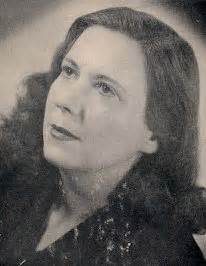A Quote by Leroy Chiao
We were doing something called telemedicine, where we were using the ultrasound. One interesting application of this ultrasound is the possibility that you could possibly use it to measure critical bone areas during a long space mission and track if you're losing bone in these areas. On Earth, when they check you for bone loss, you get in this big machine. It's the size of a room and it's got a platform with an x-ray that scans your whole body and in critical areas and it takes a while and it just wouldn't be practical to have a machine like that in space.
Related Quotes
The ultrasound that has application not only in space for a long mission or for a mission to the Moon or Mars, but also in remote areas on the Earth. Not even just - I'm not even talking about expeditions like to the Antarctic, but just a remote area, a small town somewhere. The local doctor is not going to know everything, and so if that person can link in with a diagnostic ultrasound to the hospital in New York City through the internet, then they can do a very quick diagnosis of something that's wrong with someone that's in this remote area.
Anarchists should get together who agree, and develop their gifts at a critical point, in a critical place, and form genuine affinity groups in areas where they can have certain results, notable results - not move into areas of great resistance where they're almost certain to be crushed, defeated, demoralized.
Other anatomical changes associated with long-duration space flight are definitely negative: the immune system weakens, the heart shrinks because it doesn't have to strain against gravity, eyesight tends to degrade, sometimes markedly (no one's exactly sure why yet). The spine lengthens as the little sacs of fluid between the vertebrae expand, and bone mass decreases as the body sheds calcium. Without gravity, we don't need muscle and bone mass to support our own weight, which is what makes life in space so much fun but also so inherently bad for the human body, long-term.
One can see from space how the human race has changed the Earth. Nearly all of the available land has been cleared of forest and is now used for agriculture or urban development. The polar icecaps are shrinking and the desert areas are increasing. At night, the Earth is no longer dark, but large areas are lit up. All of this is evidence that human exploitation of the planet is reaching a critical limit. But human demands and expectations are ever-increasing. We cannot continue to pollute the atmosphere, poison the ocean and exhaust the land. There isn't any more available.
Two hundred miles from the surface of the earth there is no gravity. The laws of motion are suspended. You could turn somersaults slowly slowly, weight into weightlessness, nowhere to fall. As you lay on your back paddling in space you might notice your feet had fled your head. You are stretching slowly slowly, getting longer, your joints are slipping away from their usual places. There is no connection between your shoulder and your arm. You will break up bone by bone, fractured from who you are, drifting away now, the centre cannot hold.
When people conceptualize a cyber-attack, they do tend to think about parts of the critical infrastructure like power plants, water supplies, and similar sort of heavy infrastructure, critical infrastructure areas. And they could be hit, as long as they're network connected, as long as they have some kind of systems that interact with them that could be manipulated from internet connection.
I almost chopped my thumb off once. Just before I left home, I was about ten or eleven years old, and I was trying to open a bone. Can you imagine that? A bone! I was trying to get the marrow out of a bone, and I took the ax, and I went to chop it, and something slipped, and the ax went right down there and damn near cut it off.
The areas in which I teach are working-class history and African-American Studies and at its best the critical study of whiteness often grows out of those areas. The critical examination of whiteness, academic and not, simply involves the effort to break through the illusion that whiteness is natural, biological, normal, and not crying out for explanation.
The world of maps is nice and flat and simple. It has areas for people and areas for monsters. What a shock it is to discover the world is round and the areas merge and nothing separates the monsters and ourselves; that we are all whirling around in space together and there isn't even a graceful way of falling off.
I was called "T-Bow" but the people got it mixed up with "T-Bone." My name is Aaron Walker but "T-Bone" is catchy, people remember it. My auntie gave it to me when I was a kid. Mother's mother was a Cherokee Indian full blooded. There were sixteen girls and two boys in my mother's family, all dead but two.
































